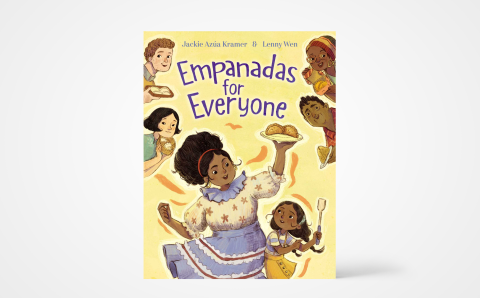“God Almighty first planted a garden. And indeed, it is the purest of human pleasures.” —Francis Bacon, Of Gardens (1625)
I adore orchids. Tending to them in my home is a hobby that brings me much joy. The beauty and variety in the orchid reminds me of God’s creativity and God’s loving care for every part of creation, and I derive great satisfaction from raising them.
With more than 28,000 species found all over the world, orchids are the largest family of flowering plants. Some orchid plants are miniscule; others are enormous, weighing hundreds of pounds. Some have a delicate or delicious perfume, others a spicy fragrance, and a few stink dreadfully. Many types of orchids can live for decades. Some are terrestrial; others are epiphytes, meaning they grow on trees or shrubs with their roots exposed to extract moisture from the humid air in their environment.
When fertilized, orchids produce vast numbers of exceedingly tiny seeds. Fascinatingly, most varieties require a compatible fungus in their environment to germinate. Some varieties will interact with only one type of fungi, making them extremely vulnerable to changes or interference in their ecosystem.
Orchid cultivation as a hobby began in the mid-1800s among wealthy collectors in England. In a period sometimes called “orchidelirium” or “orchidmania,” enthusiasts financed sometimes dangerous and extreme expeditions all over the world in an effort to obtain rare species from the wild for their collections. They would pay exorbitantly for plants that ultimately had a very low survival rate because so little was known about their care. In 1973, the Convention on International Trade in Endangered Species of Wild Fauna and Flora banned international trading of orchid species taken from their natural habitats, but even today, theft of rare and desirable orchids from botanical gardens and illegal harvesting from the wild continue, putting many species at risk of extinction.
In reflective moments while watering my own small collection, I have wondered if my own fascination with orchids is entirely honoring to God or if I am subject to a little bit of “orchidelirium” myself. Is the time and money I spend purchasing and cultivating admittedly expensive houseplants a selfish act? Is the pleasure I take in bringing them to bloom merely frivolous, incompatible with seeking first God’s kingdom? I suppose the question could be put more broadly: Can our investment in things or activities that make our lives and living spaces more satisfying and beautiful be honoring to God?
I am an admirer of the work of William Morris, an English textile designer and leader of the Arts and Crafts movement of the turn of the 20th century. Morris rejected the clutter of Victorian homes and lower-quality mass-produced products and focused instead on simplicity, beauty, creativity, and quality, handmade craftsmanship. His mantra was, “Have nothing in your houses that you do not know to be useful or believe to be beautiful.” Can this attitude be reconciled with a Christian point of view? Should our gardens include flowers, or only vegetables?
Pursuing Beauty
Beauty in the natural world is a sign of God’s provision: “Look at the lilies of the field and how they grow. They don’t work or make their clothing, yet Solomon in all his glory was not dressed as beautifully as they are. And if God cares so wonderfully for wildflowers that are here today and thrown into the fire tomorrow, he will certainly care for you. Why do you have so little faith?” (Matt. 6:28-34, NLT).
Growing things like houseplants or a garden is in itself an optimistic and hopeful act—an act of faith, even. There is no guarantee that the seed will flourish, the plant will flower, or the vine will produce fruit, and yet when we tend to plants, we trust in God’s provision. It can take a long time to see results, especially with slow-growing plants such as orchids. Gardening teaches me that good things don’t always come quickly. A life lived for God requires patience, trust, and optimism. When life is disappointing, the beauty of an orchid reminds me to lean into grace. God is in control.
Lucy Maud Montgomery wrote in Anne’s House of Dreams, “To potter with green growing things, watching each day to see the dear, new sprouts come up, is like taking a hand in creation, I think. Just now my garden is like faith—the substance of things hoped for.” Or consider this quote from author Phyllis Theroux: “I think this is what hooks one to gardening: It is the closest one can come to being present at creation.” In Genesis 1, we find the echoing refrain “And God saw that it was good.” The Hebrew word for “good” is tov, which can also be translated as “beautiful” or “functioning as it was intended to.” Genesis 1:31 could be read like this: “Then God looked over all he had made, and he saw that it was perfect and beautiful!” Everything in creation was good, beautiful, and working the way it was supposed to work.
Creation brings glory to God because it reflects God’s attributes. God himself is beauty, and God creates beautiful things. Psalm 96:6 says, “Honor and majesty surround him; strength and beauty fill his sanctuary” (NLT). We are made in God’s image, we reflect God’s attributes, and by our nature we are drawn to beauty, creativity, and order. In 1 Corinthians 10:31, Paul instructs us to live our daily lives for the glory of God. David De Bruyn contends, “A Christian understanding of leisure is also grounded in beauty. Recreation is truly re-creation. We do those acts of restoration, of creativity, that bring beauty into the world. … All of life can be an act of contemplating God’s glory, or consecrating acts for God’s glory” (“Beauty and Christianity's Primary Endeavors,” tinyurl.com/3wacvbbb). This aligns with the Reformed view that when we do our daily work well—when we create a piece of artwork, grow a flower garden, or care for others—we are bringing glory to God by working according to our purpose, and in that, we are participating in and stewarding creation.
I believe that when we consecrate our work and our leisure activities to God’s glory, or when we contemplate a sunset or a beautiful landscape or a baby’s face and see the fingerprints of God, it brings God glory. Scripture says believers “see and reflect the glory of the Lord. And the Lord … makes us more and more like him as we are changed into his glorious image” (2 Cor. 3:16, NLT). In tending to my orchids I see a reflection of the beauty and glory of the Lord and am reminded that the God who cares enough to make a fragile houseplant so mysteriously and incredibly beautiful cares that way about me too, and that God is working in my life and in the world to bring about God’s kingdom in beautiful ways that I can’t always understand. Truly, “God has made everything beautiful for its own time” (Eccles. 3:11, NLT).
Discussion Questions
- What are some of the most beautiful things you have ever known?
- “Gardening teaches me that good things don’t always come quickly. A life lived for God requires patience, trust, and optimism.” What experiences do you have that may echo or support this statement?
- How do we encourage people, especially Christians, who might see themselves as “ugly” or not beautiful?
- How can you, in your own way, participate in adding beauty to God’s world?
About the Author
Wendy van Leeuwen is a member of Bethel Christian Reformed Church in Listowel, Ont., a secondary school teacher, and the author of several published stories and articles for children and adults.









